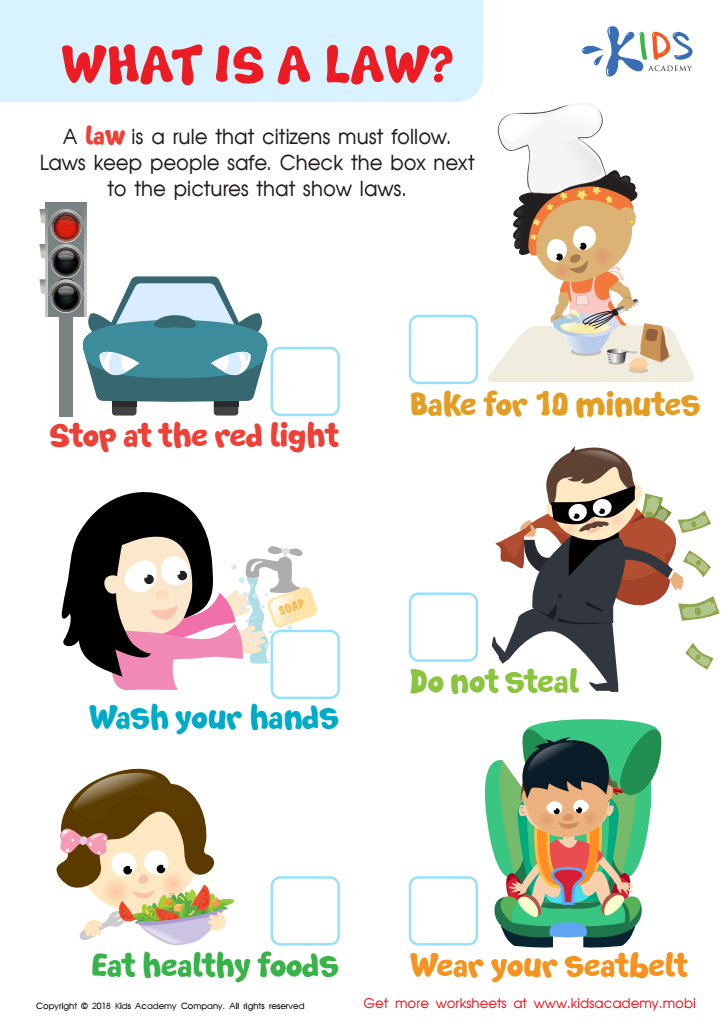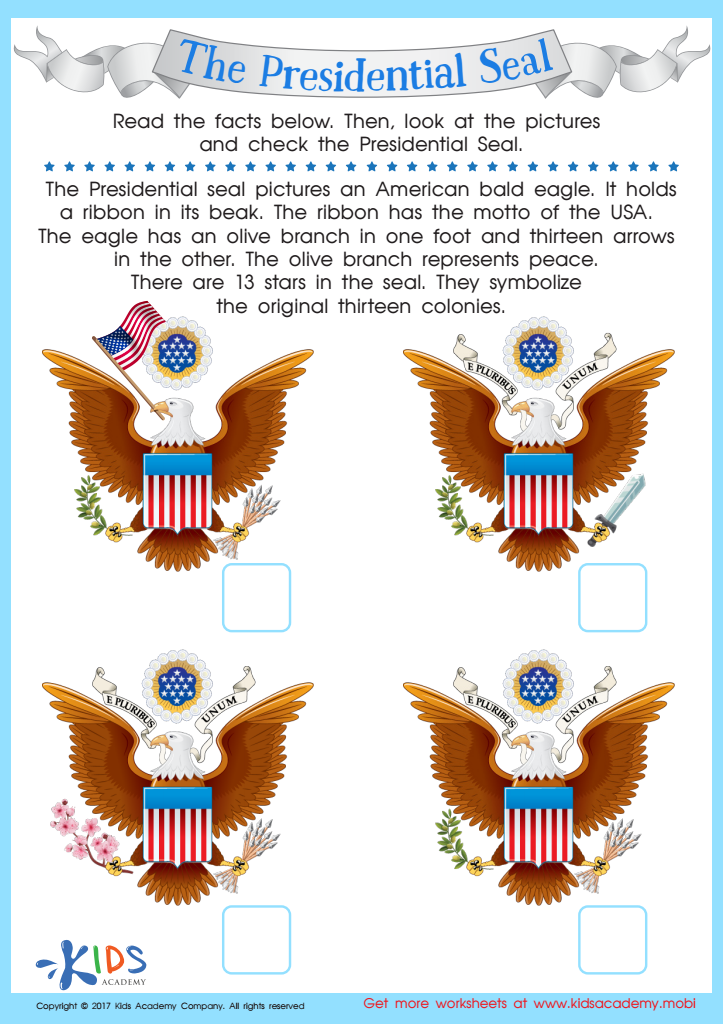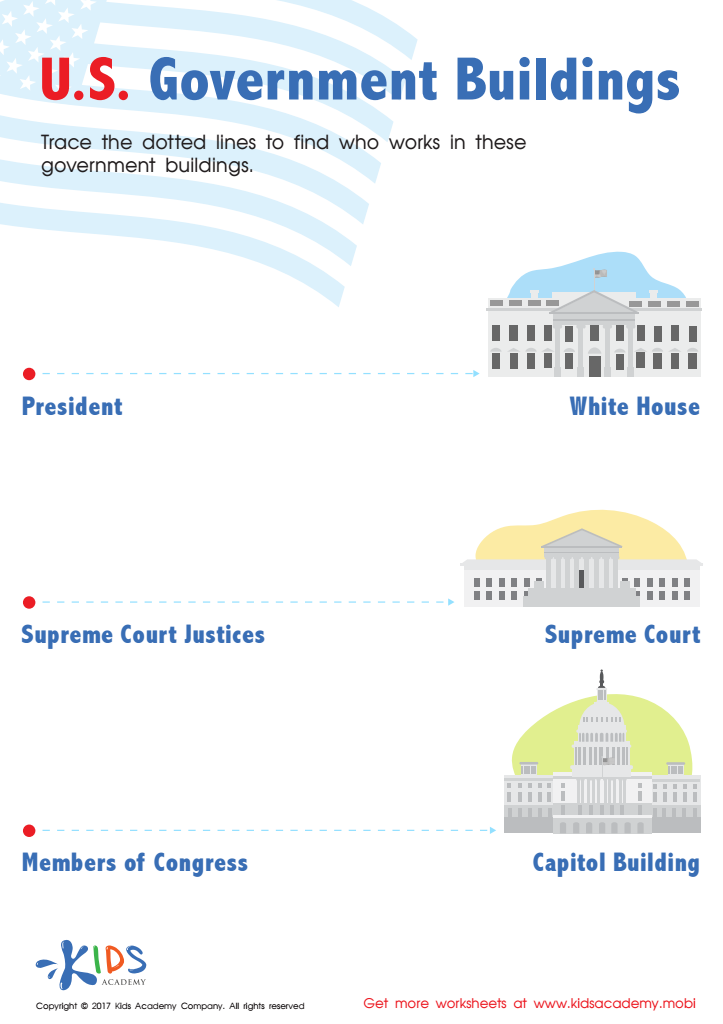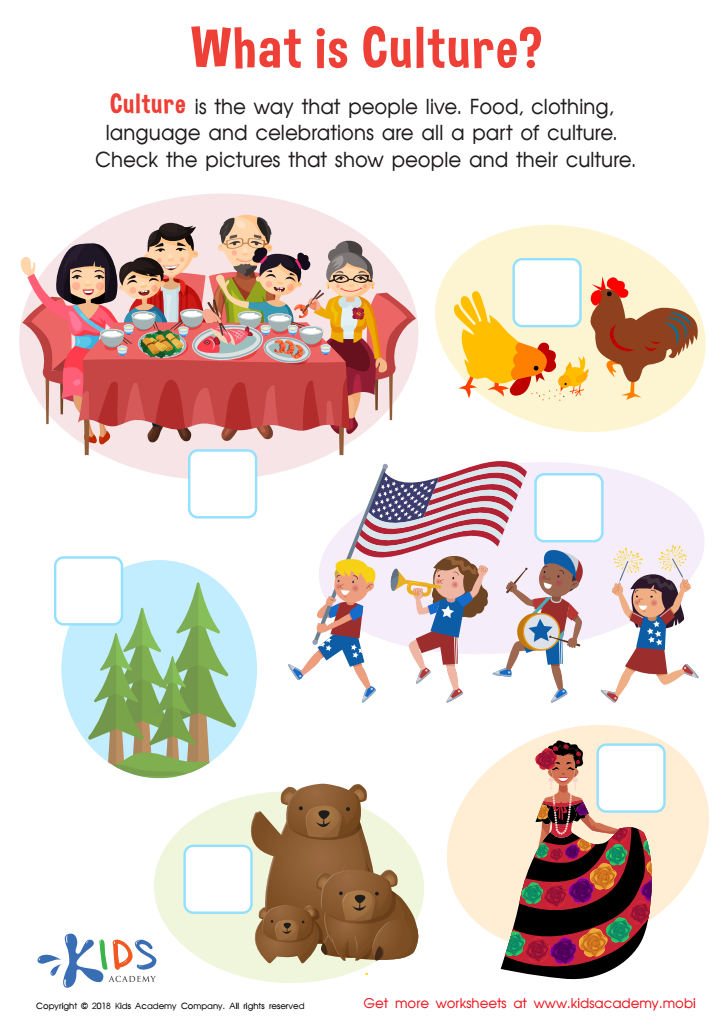Reading comprehension Governance and Civics Worksheets for Ages 5-7
4 filtered results
-
From - To
Introduce young learners to essential social studies concepts with our engaging "Reading Comprehension Governance and Civics Worksheets for Ages 5-7." Designed to develop reading comprehension and critical thinking skills, these worksheets offer age-appropriate activities that help children understand the basics of governance and civics. Through fun stories and relatable content, kids will explore community roles, laws, and responsibilities while improving their reading abilities. Perfect for classroom use or at-home learning, our worksheets provide a solid foundation in social studies, ensuring that children grasp the importance of being informed and active citizens from an early age.


What is a Law? Worksheet


The Presidential Symbol Worksheet


US Government Buildings Printable


What Is Culture? Worksheet
Parents and teachers should care deeply about reading comprehension and understanding of governance and civics for children aged 5-7 as these foundational years are critically significant in shaping a child's cognitive and social development. Early proficiency in reading comprehension not only paves the way for academic success across all subjects but also fosters a lifelong love for reading and critical thinking skills. Comprehending texts teaches young learners how to interpret information, understand complex ideas, and enhance their vocabulary, which is crucial for their future educational endeavors.
Introducing governance and civics at this early stage helps children understand the basics of a community, the importance of rules, and their roles as responsible citizens. It instills values of fairness, empathy, and respect for authority and social structures, laying the groundwork for active and informed participation in society. By teaching young children about civic principles through age-appropriate stories, discussions, and activities, we equip them with a sense of justice, responsibility, and an understanding of how their actions impact others.
Combining reading comprehension with lessons on civics ensures that children don't just learn to read, but also read to learn about the world around them, encouraging them to become knowledgeable, ethical, and engaged individuals. Only through such educational priorities can we cultivate thoughtful future citizens capable of contributing positively to their communities.
 Assign to My Students
Assign to My Students















